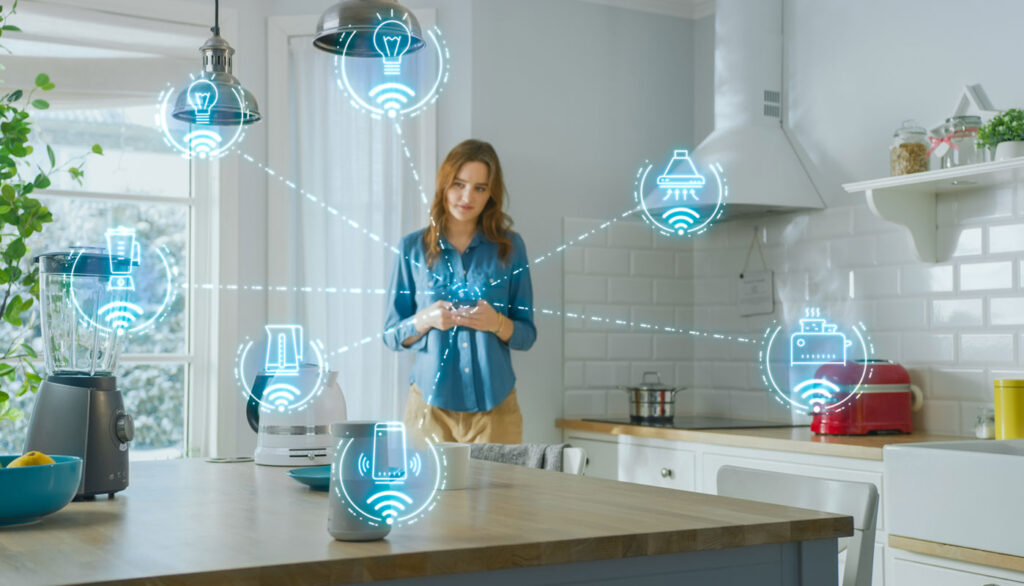
Smart Home Device Lifespan and Ways to Maximize It
In today’s fast-paced technological world, the concept of a smart home has become increasingly popular among homeowners. Individuals from various backgrounds are investing in smart home devices to enhance their daily lives. However, one common concern that arises is the smart home device lifespan. Understanding how long these devices last and how to maximize their longevity is crucial for home enthusiasts. In this article, we delve into the lifespan of smart home devices and provide insightful tips on extending their operational life.

Understanding the Average Lifespan of Smart Home Devices
The average lifespan of smart home devices varies depending on the type of device and its usage. Generally, these devices are designed to last between 3 to 10 years. However, several factors can influence their longevity, including technological advancements, usage patterns, and environmental conditions.
Factors Affecting Smart Home Device Lifespan
Several factors can impact the lifespan of smart home devices. Understanding these factors can help homeowners make informed decisions when purchasing and maintaining these gadgets. Below are some of the key factors:
- Technological Advancements: As technology rapidly evolves, newer models with enhanced features and capabilities are released. This can render older devices obsolete, affecting their lifespan.
- Usage Patterns: Frequent and intensive use of smart devices can lead to wear and tear, reducing their lifespan. On the other hand, devices used sparingly may last longer.
- Environmental Conditions: Exposure to extreme temperatures, humidity, and dust can negatively impact the performance and lifespan of smart home devices. Proper placement and maintenance are essential to mitigate these effects.
Tips for Extending the Lifespan of Smart Home Devices
While the lifespan of smart home devices may be finite, there are several strategies that homeowners can employ to maximize their longevity. Here are some valuable tips:
Regular Software Updates
Keeping your smart devices updated with the latest software is crucial for their optimal performance and longevity. Manufacturers often release updates to fix bugs, improve security, and enhance functionality. Regularly checking for and installing these updates can help extend the lifespan of your devices.
Proper Device Placement
The placement of smart home devices can significantly impact their lifespan. Avoid placing them in areas prone to extreme temperatures, humidity, or direct sunlight. For instance, keeping devices away from windows or heating vents can prevent overheating and prolong their operational life.
Routine Maintenance
Regular maintenance can go a long way in extending the lifespan of smart home devices. Dusting and cleaning the devices to prevent the buildup of dirt and debris is essential. Additionally, checking for loose connections and ensuring proper ventilation can help maintain their functionality.
The Role of Connectivity in Device Longevity
The connectivity of smart home devices plays a significant role in their lifespan. Reliable and stable network connections are essential for their optimal performance. Here are some tips to ensure seamless connectivity:
Ensuring Strong Wi-Fi Signals
Weak Wi-Fi signals can disrupt the functionality of smart home devices, leading to decreased lifespan. Placing devices closer to the router or using Wi-Fi extenders can help enhance connectivity and improve their performance.
Securing Your Smart Home Network
Protecting your smart home network from unauthorized access is crucial for device longevity. Using strong and unique passwords, enabling two-factor authentication, and keeping your network firmware updated are essential steps in securing your smart home network.
Integration and Compatibility with Other Systems
Smart home devices often rely on seamless integration with other systems for optimal performance. Ensuring compatibility with existing devices and platforms is crucial for their longevity. Here are some considerations:
Choosing Compatible Devices
When expanding your smart home ecosystem, it’s essential to choose devices that are compatible with your existing setup. Ensuring compatibility with platforms like Apple HomeKit or Google Home can help optimize device performance and extend their lifespan.
Integrating with AI and Automation
Integrating smart home devices with AI and automation systems can enhance their functionality and prolong their lifespan. AI systems can anticipate usage patterns and optimize device performance, reducing wear and tear.
Environmental Impact and Sustainability
As the demand for smart home devices grows, it’s important to consider their environmental impact and sustainability. Here are some tips for minimizing their carbon footprint:
Energy Efficiency
Opting for energy-efficient smart home devices can reduce power consumption and extend their lifespan. Look for devices with energy-saving features and certifications, such as Energy Star, to minimize environmental impact.
Recycling and Responsible Disposal
When smart home devices reach the end of their lifespan, proper recycling and disposal are crucial. Many manufacturers offer recycling programs to ensure responsible disposal of electronic waste.

FAQs
How long do smart home devices typically last?
Smart home devices generally last between 3 to 10 years, depending on factors such as technological advancements, usage patterns, and environmental conditions.
What can I do to extend the lifespan of my smart home devices?
Regular software updates, proper device placement, routine maintenance, and ensuring strong connectivity are key strategies for extending the lifespan of smart home devices.
Are there any eco-friendly options for smart home devices?
Yes, many manufacturers offer energy-efficient smart home devices that are designed to minimize environmental impact. Look for devices with energy-saving features and certifications.
For more information on setting up a smart home, visit this useful guide from Wired. Additionally, you can learn about the integration of AI in smart home systems and the benefits it offers. To ensure your devices remain in top condition, check out these smart home maintenance tips. For a deeper understanding of smart home sensors, explore this insightful article on understanding smart home sensors.
This article contains affiliate links. We may earn a commission at no extra cost to you.